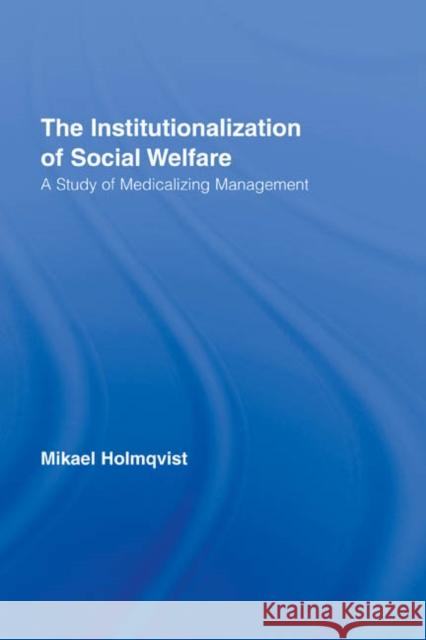The Institutionalization of Social Welfare: A Study of Medicalizing Management » książka
The Institutionalization of Social Welfare: A Study of Medicalizing Management
ISBN-13: 9780415958028 / Angielski / Twarda / 2007 / 216 str.
The Institutionalization of Social Welfare: A Study of Medicalizing Management
ISBN-13: 9780415958028 / Angielski / Twarda / 2007 / 216 str.
(netto: 218,29 VAT: 5%)
Najniższa cena z 30 dni: 201,44
ok. 16-18 dni roboczych.
Darmowa dostawa!
Today most countries rely on formally organized welfare programs - in some cases to the extent that they are labeled "welfare states." These programs, which have been constructed over the last decades, make up a larger national and international system of good intentions. Overall, it appears inconceivable to imagine "civilized society" without a comprehensive organizational system of social welfare. Social welfare has become a "holy cow" in many societies; an institutionalized aspect of modern life. But how does the institutionalization of social welfare occur through the concrete activities it enacts; and why does the institutionalization of social welfare appear to be so particularly successful in relation to other institutionalizing phenomena? These are central problems for any sociological analysis of contemporary society's organization and are the main locus of attention of this book. Holmqvist explores how a social welfare organization becomes a self-evident phenomenon by "medicalizing" its environment: a way of "solving" social problems by viewing and treating them as medical problems. This study generates new understandings of how institutionalization of organizations comes about and contributes fresh insight to the area of social welfare policies.











